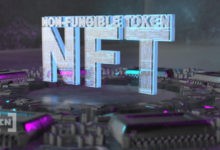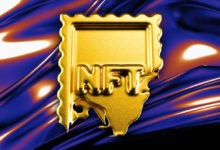Here’s How Web3 Can Wipe Out Issues the Ticketing Industry Has Faced for Decades

Josh Katz is the chief executive officer (CEO) and founder of Web3 ticketing platform YellowHeart.
__________
Web3 first began as a vision of a decentralized internet that allows people to fully own digital items. Sounds simple enough, which is why so many different industries have jumped at the opportunity to make it a reality.
At the same time, this new paradigm looks to deliver much more than just a series of interconnected websites and social media profiles. Decentralized technologies that underpin the Web3 movement have already been tested in several industries, ranging from electric vehicles and energy supply, to trade finance. This tech has quickly evolved from being speculative to fully functional, as it forms the building blocks of the next phase of the internet.
Arguably, one of the fastest-emerging sectors of Web3 is non-fungible tokens (NFTs). While these started out as merely a profile picture for many, NFTs built with actual utility have the ability to fix some of the biggest problems across every industry.
Chief among them is the event ticketing space.
The opportunity is here — as long as Web3 ticketing can catch up
Despite the fact that many players in traditional ticketing claim the current system is effective, consumers, artists, and even sports teams would argue otherwise. Historically, the industry has been fraught with issues stemming from small paper tickets that can be easily forged and replicated.
Moreover, the inherently finite supply of physical tickets also gave birth to a process known as “scalping,” which allows people to buy loads of tickets in bulk and resell them on unauthorized secondary markets at inflated prices.
These people are what we call bad actors, and the issues they’ve created have remained stagnant for decades.
Today, if tickets to a show are sold out, fans are usually forced to either miss out or pay a scalper for an overpriced ticket. Even worse, this puts the fan at increased risk of obtaining a counterfeit ticket.
Another major issue is the fact that proceeds from ticket sales on the secondary market never actually reach artists, creators, or venues, effectively benefitting only the scalpers themselves.
Even though all of these issues exist, the online ticketing market is expected to reach USD 68 billion by 2025, and secondary sales already amount to roughly USD A15 billion. But fake ticketing of large-scale events unfortunately still remains rife, with a recent example being the UEFA Champions League final in Paris, where chaos ensued after 70% of total tickets sold turned out to be fake.
An easy and scalable solution
Since the rise of online ticketing, the industry has barely evolved or innovated beyond the introduction of QR codes. This is quickly changing as more industry players catch wind of NFT tickets and their perks.
NFTs are built on blockchain technology, but unlike regular cryptocurrencies, are non-interchangeable, making each one wholly unique and identifiable. This creates the opportunity for NFT tickets to unlock greater fan engagement and rewards, while mitigating the fraudulent practices that are so common in the traditional ticketing sector today.
Due to their highly programmable nature, NFT tickets offer a realistic and scalable alternative to traditional ones.
Namely, with tickets delivered in the form of NFTs, forgery or replication is rendered almost impossible since the history and authenticity of these assets can be checked and verified at a glance on their respective blockchains.
NFT tickets also greatly benefit the secondary market. Since everything on the blockchain is transparent and there’s a record of ownership, reselling unauthorized NFT tickets is nearly impossible, unless transacted through cash, of course.
If an artist, venue, or other stakeholder wants their NFT tickets to be available for resale, the tickets can be easily programmed so that a set amount of the secondary sale price goes to the original seller. Traditional tickets currently only benefit the person or entity reselling them, which is usually either a scalper or a third-party company.
Much more than just a barcode
Today, NFT ticketing is no longer just an idea. For example, the music and arts festival Coachella used NFT-based tickets to grant access to specific acts during its 2022 event, with each token also delivering pre-programmed perks to attendees. These ranged from posters and other mementos linked to artists performing at the festival, to passes that allowed entry to exclusive on-site events, to lifetime access to future Coachella festivals.
MGM Grand Casino in Las Vegas launched a similar program in April when it employed NFTs for its Jabbawockeez dance show. The NFT tickets were used to grant entry to the event. When they were activated, they changed from black-and-white to color, then released perks for ticket holders. These included airdropped food and drink tokens, as well as complimentary gifts that were released to token holders as keepsakes the day after the show.
The NFT ticket’s ability to act autonomously in response to real-world usage unlocks a limitless range of applications for event organizers, and many of them are already putting this to the test.
Notably, many critics of blockchain and NFTs often paint these technologies as solutions in search of a problem. In the case of event ticketing, however, NFTs appear to have found a problem that has sought a solution for decades. Their embodied functionality, uniqueness, and verifiability make them ready-made for an industry that has been suffering from rampant forgery and a lack of adequate checks and balances for far too long.
____






 Bitcoin
Bitcoin  Ethereum
Ethereum  Tether
Tether  USDC
USDC  Dogecoin
Dogecoin  TRON
TRON  Cardano
Cardano  Bitcoin Cash
Bitcoin Cash  Chainlink
Chainlink  LEO Token
LEO Token  Stellar
Stellar  Litecoin
Litecoin  Hedera
Hedera  Monero
Monero  Dai
Dai  OKB
OKB  Cronos
Cronos  Ethereum Classic
Ethereum Classic  Gate
Gate  VeChain
VeChain  Cosmos Hub
Cosmos Hub  Algorand
Algorand  KuCoin
KuCoin  Stacks
Stacks  Tether Gold
Tether Gold  Theta Network
Theta Network  Zcash
Zcash  IOTA
IOTA  Tezos
Tezos  TrueUSD
TrueUSD  NEO
NEO  Polygon
Polygon  Ravencoin
Ravencoin  Decred
Decred  Dash
Dash  Qtum
Qtum  Zilliqa
Zilliqa  Synthetix Network
Synthetix Network  0x Protocol
0x Protocol  Basic Attention
Basic Attention  Siacoin
Siacoin  Status
Status  Holo
Holo  DigiByte
DigiByte  Enjin Coin
Enjin Coin  Nano
Nano  Ontology
Ontology  Waves
Waves  Hive
Hive  Lisk
Lisk  Pax Dollar
Pax Dollar  Steem
Steem  Numeraire
Numeraire  BUSD
BUSD  Huobi
Huobi  NEM
NEM  OMG Network
OMG Network  Bitcoin Gold
Bitcoin Gold  Ren
Ren  Bitcoin Diamond
Bitcoin Diamond  Augur
Augur  Energi
Energi  HUSD
HUSD